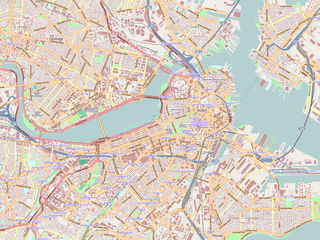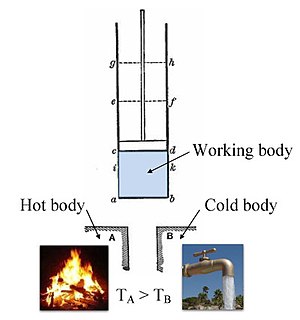
Science education is the field concerned with sharing science content and process with individuals not traditionally considered part of the scientific community. The learners may be children, college students, or adults within the general public; the field of science education includes work in science content, science process, some social science, and some teaching pedagogy. The standards for science education provide expectations for the development of understanding for students through the entire course of their K-12 education and beyond. The traditional subjects included in the standards are physical, life, earth, space, and human sciences.

Homework, or a homework assignment, is a set of tasks assigned to students by their teachers to be completed outside the class. Common homework assignments may include required reading, a writing or typing project, mathematical exercises to be completed, information to be reviewed before a test, or other skills to be practiced.
Coursework is work performed by students or trainees for the purpose of learning. Coursework may be specified and assigned by teachers, or by learning guides in self-taught courses. Coursework can encompass a wide range of activities, including practice, experimentation, research, and writing. In the case of students at universities, high schools and middle schools, coursework is often graded and the scores are combined with those of separately assessed exams to determine overall course scores. In contrast to exams, students may be allotted several days or weeks to complete coursework, and are often allowed to use text books, notes, and the Internet for research.
Physics First is an educational program in the USA, that teaches a basic physics course in the ninth grade, rather than the biology course which is more standard in public schools. This course relies on the limited math skills that the students have from pre-algebra and algebra I. With these skills students study a broad subset of the introductory physics canon with an emphasis on topics which can be experienced kinesthetically or without deep mathematical reasoning. Furthermore, teaching physics first is better suited for English Language Learners, who would be overwhelmed by the substantial vocabulary requirements of Biology.
In higher education in Canada, Nigeria and the United States, a course is a unit of teaching that typically lasts one academic term, is led by one or more instructors, and has a fixed roster of students. A course is usually an individual subject. Students may receive a grade and academic credit after completion of the course.
Physics education or physics education research (PER) refers both to the methods currently used to teach physics and to an area of pedagogical research that seeks to improve those methods. Historically, physics has been taught at the high school and college level primarily by the lecture method together with laboratory exercises aimed at verifying concepts taught in the lectures. These concepts are better understood when lectures are accompanied with demonstration, hand-on experiments, and questions that require students to ponder what will happen in an experiment and why. Students who participate in active learning for example with hands-on experiments learn through self-discovery. By trial and error they learn to change their preconceptions about phenomena in physics and discover the underlying concepts.

Riverside Secondary School is a public coeducational secondary school located in Port Coquitlam, British Columbia, Canada. It enrolls approximately 1450 students from grades 9 to 12.
AP Physics B was an Advanced Placement Physics course equivalent to a year-long introductory college course in basic physics concepts. High school students studied Newtonian mechanics, electricity and magnetism, fluid mechanics, and thermal physics, waves and optics, and atomic and nuclear physics in preparation for a cumulative exam given each May. The course was algebra-based and involved algebra and trigonometry to solve various physics problems.
Aplia Inc. is an educational technology company founded in 2000 by Stanford University professor Paul Romer that offers online homework products geared toward college-level courses. In March 2007 Cengage Learning acquired Aplia Inc. Aplia was based in Belmont, California until March 2014, when it relocated to Cengage Learning's new Mission Bay, San Francisco office.

Mountain Vista Governor's School for Science, Math & Technology is one of Virginia's 18 state-initiated governor's schools, serving primarily 10th, 11th, and 12th graders. The school is composed of two campuses, one each in Middletown, Virginia, United States and Warrenton, Virginia, United States. Admission is determined via an application process.
Quest Learning & Assessment is a non-profit organization at the University of Texas at Austin College of Natural Sciences maintaining a web-based tool for instructors and students of mathematics and science. Originally created as the UT Physics Homework Service as early as 1991, the system was updated and moved to the College of Natural Sciences in 2002 to provide service to the broader array of STEM courses. It is being used at over 1,000 U.S. institutions; high schools as well as 2-yr/4-yr colleges and universities.

A. Philip Randolph Career Academy is a Philadelphia public high school that is named in honor of Asa Phillip Randolph and is run by the Philadelphia School District. The Principal is Dr. Michelle Burns. A. Philip Randolph was once part of Dobbins/Randolph together, but now they are two different campuses. They share the football team.

Community Charter School of Cambridge Cambridge, Massachusetts, U.S.. Located in the Kendall Square area near MIT, the school serves 360 students in grades 6-12. CCSC opened in September 2005. Since 2009, when CCSC graduated its first class, 100% of seniors have been admitted to college, with over 90% to four-year schools including Boston College, Bucknell University, Cornell University, Columbia University, Dartmouth College, Northeastern University, UMass Boston, University of Chicago, Stanford University, and Massachusetts Institute of Technology. In 2013, 100% of CCSC 10th graders scored advanced or proficient on the ELA MCAS. In 2012, 100% of 10th graders at CCSC scored advanced or proficient on both the math and English MCAS tests, earning the school a #1 ranking statewide. In 2011, CCSC was 1 of 14 charter schools in the U.S. to be awarded an EPIC grant for attaining the highest gains in student achievement.
Lyryx Learning (Lyryx) is an educational software company offering open educational resources (OERs) paired with online homework for undergraduate introductory courses in Mathematics & Statistics and Business & Economics.
MyMathLab is an online interactive and educational system designed by Pearson Education to accompany its published math textbooks. It covers courses from basic math through calculus and statistics, as well as math for business, engineering and future educators. Pearson designed MyMathLab to respond to the needs of instructors and students who wanted more opportunity for practice, immediate feedback, and automated grading.
In the United States, Advanced Placement (AP) Physics collectively refers to the College Board Advanced Placement Program courses and exams covering various areas of physics. These are intended to be equivalent to university courses that use best practices of physics teaching pedagogy.
A flipped classroom is an instructional strategy and a type of blended learning that reverses the traditional learning environment by delivering instructional content, often online, outside of the classroom. It moves activities, including those that may have traditionally been considered homework, into the classroom. In a flipped classroom, students watch online lectures, collaborate in online discussions, or carry out research at home while engaging in concepts in the classroom with the guidance of a mentor.
openSAP is an Enterprise MOOC platform for massive open online courses, or MOOCs. It is provided by SAP and hosted at the Hasso Plattner Institute in Potsdam, Germany. Everyone can enroll in openSAP courses, which are provided free of charge.
Advanced Placement (AP) Physics 2, along with AP Physics 1, is a year-long AP course mainly used in the United States and Canada which was designed by the College Board to replace AP Physics B in the 2014 - 2015 school year. The courses teach the same general curriculum as AP Physics B, but instead splitting the course into two and covering more information, specifically rotational mechanics. The courses were formed through collaboration between current Advanced Placement teachers and The College Board, with the guidance of the National Research Council and the National Science Foundation. Similar to AP Physics C the course is said to cover the material of a second semester university undergraduate physics course offered at a typical American university, but with an algebra based curriculum as opposed to AP Physics C calculus based curriculum.

Chandralekha Singh is an Indian-American physicist who is a professor in the Department of Physics and Astronomy at the University of Pittsburgh and the Founding Director of the Discipline-Based Science Education Research Center.











